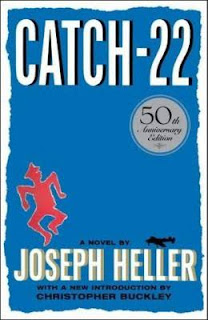This is incredible.
Just to give some context, this Buzzfeed article about the firing was posted at 5:30pm, February 19, 2016.
The facebook group in which the new allegations were posted was created on February 11, 2016. The new allegations against Grace were posted in said facebook group on February 19, 2016, at 11:09 AM and 3:33 PM respectively.
By 5:30 PM that same day, Grace was gone.
Holy sh**.
If this doesn't demonstrate the power of social media, I don't know what does. Perhaps I am overstating the cause/effect relationship here, but when the allegations against Grace (what a name, by the way) originally came out in 2007 and then again in January of this year, nothing happened.
I mean, nothing happened.
In the first instance, according to the former intern who accused Grace of harassment, iO West co-founder Charna Halpern brushed off the allegations and offered her free classes. In the second instance, Halpern denied the allegations and that she had any knowledge of them, making some unfortunate comments about sexual harassment and false accusations that are surely the stuff of a public relations nightmare.
In essence, Grace sexually harassed and assaulted an intern at iO West in 2007, then went on as the artistic director for NINE MORE YEARS, harassing and/or assaulting at least two other women in that time frame.
To put it in context, from 2007 (before facebook and other forms of social media became ubiquitous) to today:
9 years
6.5 hours
More context: As sexual harassment in the improv community has come to light, Grace was apparently part of efforts to encourage those affected to come forward and ask for help from the theater.
In fact, he was quoted in the original Buzzfeed article entitled "Standing Up To Sexual Harassment And Assault In L.A.’s Comedy Scene." Here's what he had to say:
[Initiatives taken by iO West to address sexual harassment] were directly inspired by what happened on Facebook, said James Grace, the theater’s artistic and managing director. “You have to make everyone feel safe to create and perform,” Grace said. “We’re really trying to make a real effort to reach out and actively make people feel more included.”Furthermore, there is an email address listed on facebook for those who have experienced harassment in the iO West community to contact: james@ioimprov.com. The post dates from September 2015. Assuming this is the same James who also sexually harassed and assaulted women at iO West—
HOLY SH**
The same person who was harassing and assaulting students/interns at iO West was the same guy coming forward in the midst of all this controversy to talk about protecting and helping victims. No wonder those who were harassed didn't feel safe coming forward—the very person they were expected to approach was himself a serial harasser.
I should note here that those who posted their stories on facebook also went through official channels and urged other victims of Grace to do the same.
But it's hard to underestimate the effects of social media in this particular case, given the timeline involved. There's so much debate about the negative effects of social media, but things like facebook and Instagram can be incredibly powerful in outing and exposing systemic abuses in institutional contexts.
I have incredible respect for these women for going public.
For once, it seems, someone was right on the internet. Holy sh** indeed.












